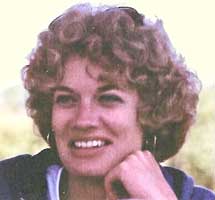Theodore Martinez, whom we honored in 2018, is an adjunct professor at Asnuntuck Community College, teaching psychology at a state prison. As guest speaker at the reception honoring Isabella “Ivy” Horan on May 9, 2019, he presented the following reflections his experience and the impact of teachers of color.
It’s an honor for me to be here tonight and to pass the torch to tonight’s recipient. Congratulations, Isabella, on this honor, and welcome to the Alma Exley family.
I must admit, I am very impressed in hearing of all of Isabella’s accomplishments. Addressing educational equity is not an easy feat, but incredibly important. As teachers of color, it often falls on us to be the voice of experience for our students. I’m happy to learn she has already found her voice and is already advocating for change.

This year, I began working as an adjunct at Asnuntuck Community College, teaching an Introduction to Psychology course. I mention this because the students I work with are in a situation many of us are trying to prevent. These students have found themselves on the wrong end of the fabled school-to-prison pipeline. Asnuntuck has partnered with four of the correctional institutions in Connecticut to offer college courses, leading to degrees, for students housed in these facilities in an effort to reduce recidivism. This program is under the Second-Chance Pell Program, a national initiative, and I’m proud to say Asnuntuck is one of the largest programs in the country.
Every Monday night, I sit in classroom with 15 students. Of those 15 students, 12 are minorities. This is a trend that many of my colleagues experience. And while the thought of so many minority students pursuing a college degree fills me with pride, their overrepresentation in this particular class, in this particular setting troubles me.
These students are hardworking and dedicated. They’re committed to their success, and on multiple times we’ve reflected on their actions leading to their incarceration. Each time we do, at least one acknowledges if he had known better, he would do better. If he had someone who rooted for him, he might not have ended up here.
When I leave the prison on Monday night, and enter my classroom of third graders on Tuesday morning, I’m hit with the same thought: What can I do to make sure these students don’t end up in my Monday night class? How can I help them?
Like the adults I teach, my classroom of third graders consists primarily of minority students. Of the five students who receive special education support, three are minorities. All of the behavior plans that have been established are for minority students.
This is seen nationally. Research tells us there is an overrepresentation of minority students in special education. We know there’s a problem. The question that evades so many of us is “How do we fix it?”
The first step is why we’re all here. The same research that tells us there’s a problem also tells us that we desperately need more teachers of color. Students of color perform better when they see someone who looks like them. They achieve more when they have someone who speaks like them; who understands them. I’m sure of my fellow recipients currently working in the field can share their own personal stories regarding the truth in this statement.
I always think of one particular student. This student had been identified as a “problem” child by my colleagues and as such was written off by many of them. They labeled him as disrespectful, disruptive and argumentative. Over time, I was able to build a relationship with him. He confided in me, telling me that because we looked alike, he felt better. He began sharing a home-life I couldn’t relate to. This student was disruptive in class because he hated silence. He lived in a rough part of Hartford and had been home alone when someone broke into the house. Silence unsettled him. He was acting out because he didn’t have strategies to manage. Because I stopped and asked why, we were able to work together and help him succeed.
Every day a student like him enters your classroom carrying something unseen. And every day it falls on their teacher to be their one constant. The job is tiring. You build these powerful relationships with students and worry about them at night. Stress comes from trying to plan the perfect lesson that integrates cultural understanding, supports their social/emotional growth and development, and still hits the academic standards.
Teachers are required to wear many hats: educator, surrogate parent, therapist, guide, nurse. Teaching is a lot. But at the end of the day, there’s nothing else I’d rather do.
Nothing matches the feeling you get from working with students, pushing them to continually grow in their learning. Seeing their faces glow when experiencing something new is priceless. Establishing those bonds, working to be that one teacher a student remembers, is fulfilling. At the end of the day, a student won’t remember what you taught them, but they will remember how you made them feel.
Isabella, congratulations on becoming the 2019 recipient. Welcome to the Alma Exley scholarship family, and welcome to the fight to change education for the better.
